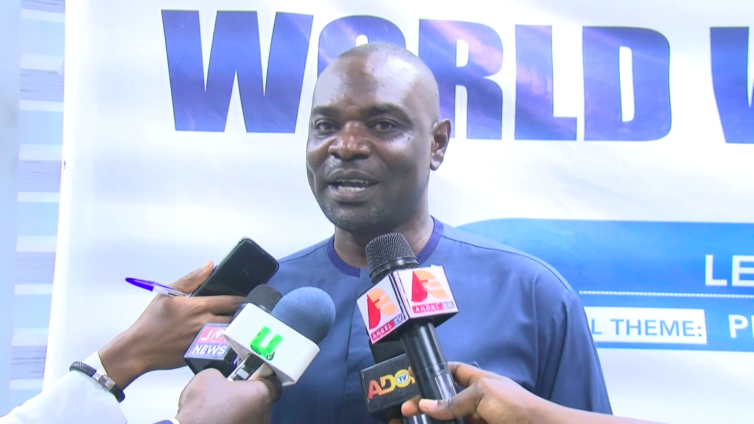Ghana is witnessing a concerning drop in water quality attributed to land use activities, prompting urgent calls for collaborative action.
Human activities such as illegal mining, fishing with harmful chemicals, and improper waste management are contributory factors to the depreciation in water quality.
Recent statistics reveal a significant decline in the quality of the nation’s water resources, plummeting from 86 percent to 58.8 percent.
Speaking to JoyNews, the Executive Director of the Water Resource Commission, Dr Bob Alfa, highlighted the reasons for this decline in water quality.
He explained, “Ghana’s water resources are deteriorating in terms of quality. We are experiencing degradation of our water bodies due to land use activities. However, we still have some parts of Ghana where we have quite a lot of good water resources. So, for some areas, we have good water quality, and for some areas, we have poor water quality. That is the situation now.”
Dr Alfa emphasised that Ghana had good water resources in previous years in terms of percentage, but due to the activities of illegal mining, the nation started losing some of its river bodies.
He stressed the need to address destructive land practices to protect Ghana’s dwindling water resources.
“If we are able to combat galamsey and improper waste disposal, I believe we can restore our water quality back to the previous level of 86 percent,” he added.
He clarified that Ghana is within the borderline of being a water-secure country but has been classified as a water-vulnerable country. He warned that if the nation makes mistakes, it could become water-insecure.
Dr Alfa suggested possible solutions to curb the situation, emphasising the need for proactive measures aimed at reversing this trend.
He called for collaboration among stakeholders to ensure a sustainable future for all.
“We have to collaborate with other agencies – such as the Ministry of Lands and Natural Resources, the Environmental Protection Agency (EPA), and other relevant bodies – to eliminate the menace of galamsey,” he said.
The Executive Director of the Water Resource Commission acknowledged that the fight against illegal mining would take time but urged all stakeholders to join forces in this battle.
Additionally, he identified bad fishing methods, such as using chemicals, and improper waste disposal as significant challenges.
Dr Alfa mentioned ongoing efforts to tackle these issues, including collaborating with the Ministry of Fisheries on fish farming and working with local assemblies to address waste disposal problems.
He reiterated his organisation's commitment to collaborating with all relevant agencies to minimise the impacts of these detrimental activities.
Latest Stories
-
Joy FM listeners criticise Achiase Commanding Officer’s election comment
14 mins -
Legal Aid Commission employees threaten strike over poor working conditions
17 mins -
Ghana ranked 7th globally as biggest beneficiary of World Bank funding
26 mins -
IMF board to disburse $360m to Ghana in December after third review
31 mins -
Former Bono Regional NPP organiser donates 13 motorbikes to 12 constituencies
37 mins -
Securities industry: Assets under management estimated at GH¢81.7bn in quarter 3, 2024
41 mins -
Gold Fields Ghana Foundation challenges graduates to maximise benefits of community apprenticeship programme
2 hours -
GBC accuses Deputy Information Minister Sylvester Tetteh of demolishing its bungalow illegally
2 hours -
Boost for education as government commissions 80 projects
3 hours -
NAPO commissions library to honour Atta-Mills’ memory
3 hours -
OmniBSIC Bank champions health and wellness with thriving community walk
3 hours -
Kora Wearables unveils Neo: The Ultimate Smartwatch for Ghana’s tech-savvy and health-conscious users
3 hours -
NDC supports Dampare’s ‘no guns at polling stations’ directive
3 hours -
Police officer interdicted after video of assault goes viral
3 hours -
KNUST’s Prof. Reginald Annan named first African recipient of World Cancer Research Fund
3 hours

